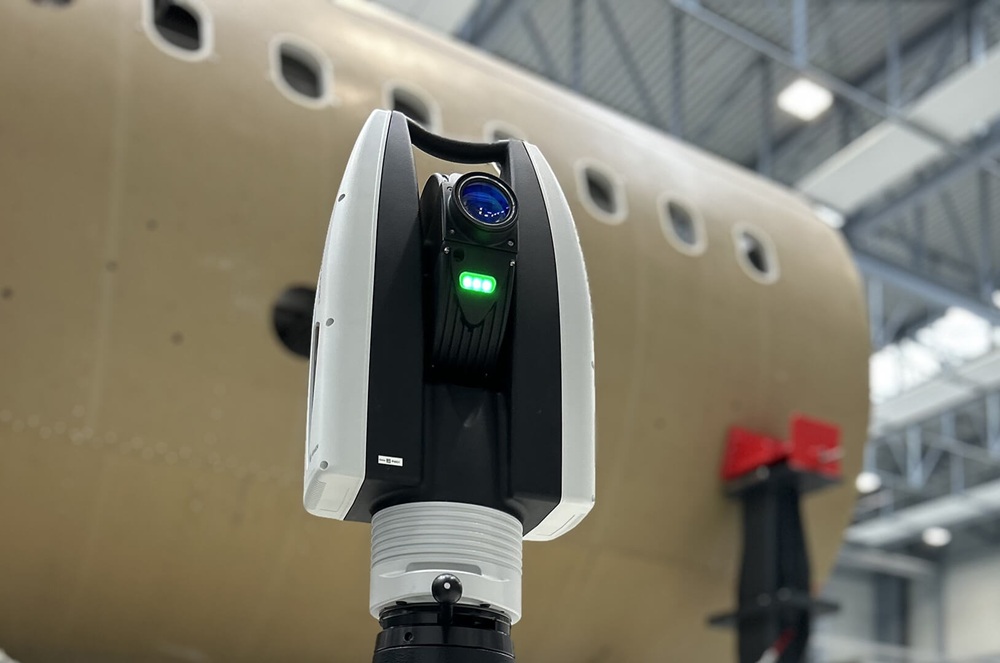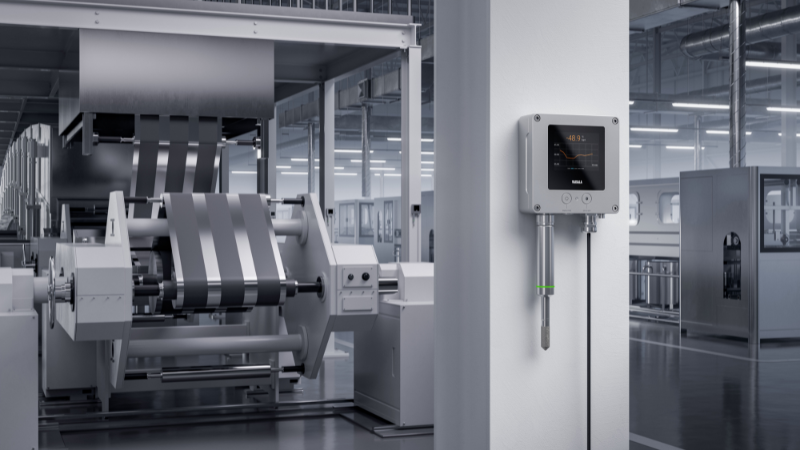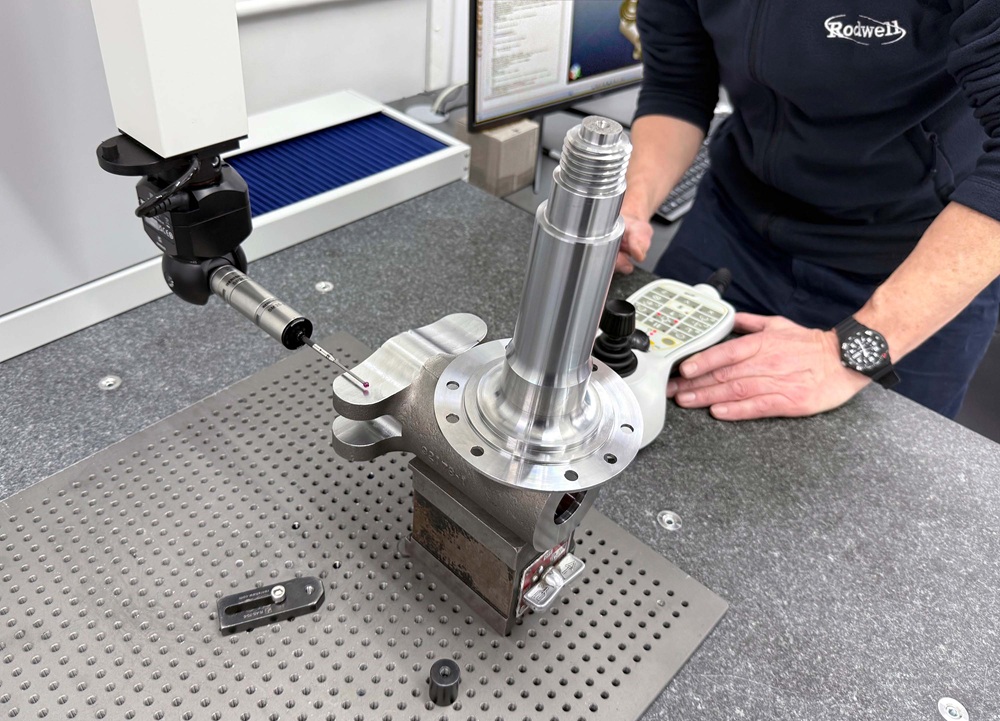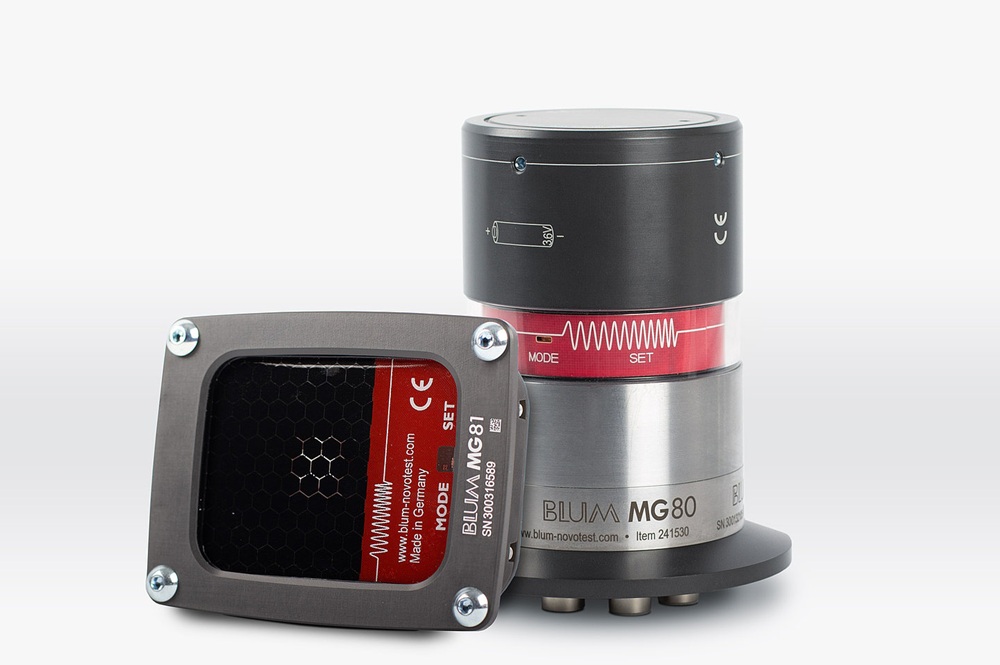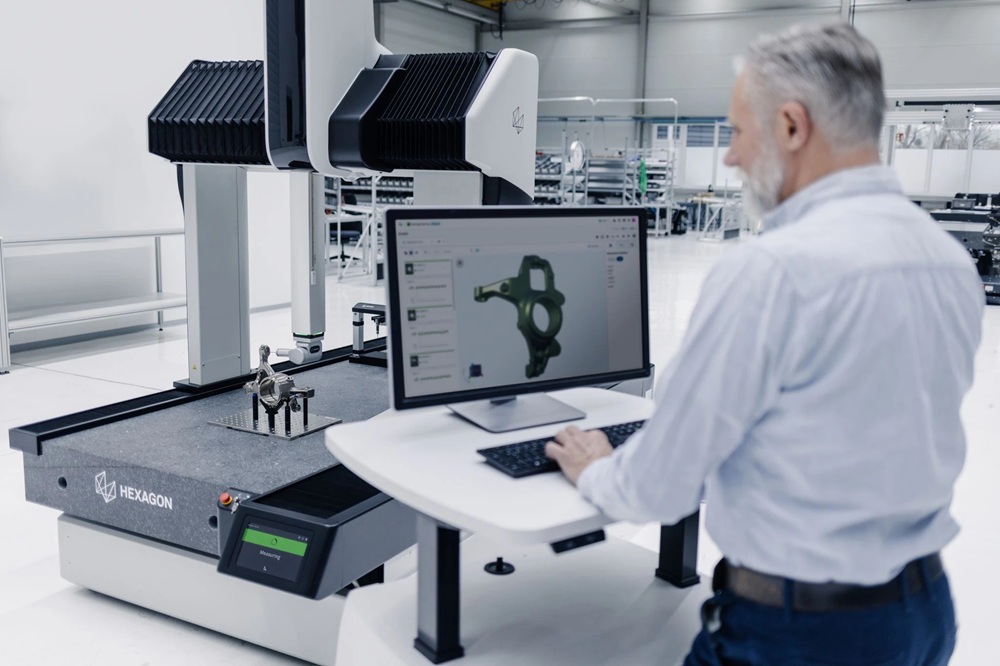As aerospace manufacturers race to ramp up production amid labour shortages and rising costs, Hexagon’s Manufacturing Intelligence division has launched the Leica Absolute Tracker ATS800, a next-generation laser tracker for high-mix, large-structure production environments. The system represents an entirely new quality inspection solution in large-scale manufacturing areas such as aerospace and wind energy, delivering direct scanning accuracy comparable to reflector measurement systems, packaged in a portable lightweight design.
With integration into digital and robotic automation workflows, the ATS800 reduces inspection time while enabling real-time measurement and process alignment. A key innovation is FeatureDetect, an automatic feature recognition capability that identifies important part geometries without the need for manual programming. By reducing operator workload, FeatureDetect unlocks productivity gains in both automated and manual inspection processes.
FeatureDetect operates from CAD data or independently, using the ATS800’s built in high-resolution panoramic camera. This wide-aspect live image feed allows the system to recognise features directly from the physical part, accelerating set-up and streamlining inspection.
With set-up times reduced from hours to minutes, Hexagon says the ATS800 supports unattended or in-process inspection – from fuselage alignment to composite lay-ups – without compromising on accuracy or traceability.
“Today’s manufacturers are under immense pressure to increase output while maintaining the highest quality standards, and traditional labour-intensive processes can’t keep pace,” states Rodrigo Alfaia, laser tracker product director at Hexagon. “The ATS800 eliminates hours of set up and ‘boots-on-the-ground’ measurement activity without sacrificing precision.”
He adds: “We’re physically and digitally automating large-scale inspection by bringing data-driven processes to the operational level, whether scanning a full fuselage overnight or guiding critical assembly processes in real time without the need for complex operator training.”
More information www.bit.ly/408wLA8







